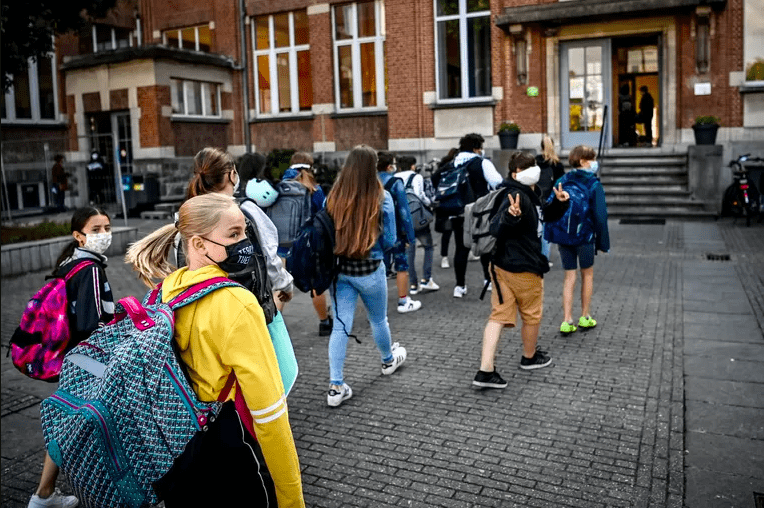The percentage of pupils who have antibodies against the coronavirus is comparable to that of the general population, proving that the virus does not spread more in schools, according to a study by Sciensano public health institute and the KU Leuven.
In the period from December 2020 to January 2021, an average of 12.4% of pupils and 14.8% of school staff in primary schools and the first year of secondary education in Belgium had antibodies against the coronavirus.
“Our study finds no evidence that schools are places where the virus is more widespread or more likely to spread than elsewhere in the community,” the report statement read.
Samples were taken from 1,285 pupils and 818 school staff members in 44 primary schools and 40 secondary schools, which Sciensano says is representative of all pupils and school staff in Belgium.
Related News
- Self-tests should not be used as free pass for concerts or to travel, Belgian microbiologist says
- Increase in coronavirus infection rate dropping, but number of people in ICU rises
Only 2% of the pupils and 10% of the staff tested positive for Covid-19 before the study, and no one in the sample study had been hospitalised as a result of the virus, according to the results of a survey accompanying the study.
The study found there were regional differences in the figures, with the highest percentage of antibodies in pupils reported in Brussels (24%), and the highest percentage amongst staff in Wallonia (17.7%).
“These differences reflect the regional epidemiological situation during the second wave, which mainly affected Brussels and Wallonia,” the report stated.
However, it also noted that the figures for Brussels were based on a small number of pupils and staff and therefore were "statistically uncertain," adding that more data will be available for the region in the next testing periods.
The same group of students and staff were tested a second time in March, and another testing is planned from mid-May to mid-June.
Lauren Walker
The Brussels Times

